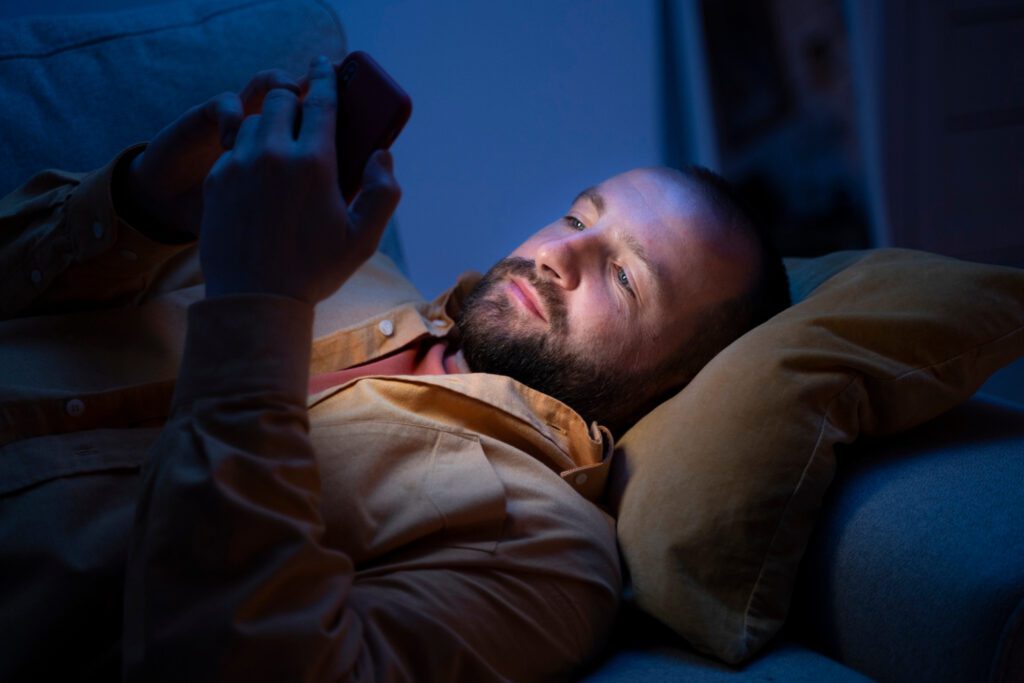Most of us love the idea of catching up on extra sleep during weekends or after a tiring week. But sometimes, instead of waking up refreshed, you end up groggy — or worse, with a pounding headache. Can oversleeping cause headaches? Let’s take a gentle, science-backed look at the connection between too much sleep and head pain.
Understanding the answer to “can oversleeping cause headaches” can help you create better sleep habits and avoid those unwanted wake-up symptoms.
How Much Sleep Is Too Much?

For adults, the sweet spot is usually 7–9 hours of sleep per night. Regularly sleeping more than 9–10 hours, especially without a medical reason, is considered oversleeping.
Occasional long sleep isn’t harmful on its own. But frequent oversleeping may affect your body’s internal rhythm and trigger headaches for several reasons.
Why Oversleeping Can Lead to Headaches
Several factors explain why oversleeping can leave your head feeling heavy:
- Disrupted Sleep Cycles
Sleeping too long can interfere with your natural sleep-wake pattern (called your circadian rhythm), making it harder for your brain to transition smoothly between stages of rest. - Drop in Blood Sugar
Skipping breakfast or sleeping through your usual eating window may lower your blood sugar, which is a known headache trigger for many people. - Muscle Tension or Poor Posture
Staying in the same sleep position too long can cause neck and shoulder tension, which often leads to tension headaches. - Changes in Serotonin Levels
Oversleeping may alter your brain’s serotonin balance — the chemical that helps regulate mood, pain, and sleep. Fluctuations in serotonin levels are linked to headaches and migraines. - Dehydration
If you’re sleeping longer, you’re also going longer without water. Even mild dehydration can contribute to headaches.
What the Research Says
According to a study published in the journal Sleep, people who oversleep regularly are more likely to report headaches, especially on weekends. Another article from the National Sleep Foundation supports the idea that both too little and too much sleep can disrupt your health and increase discomfort like headaches. This raises an important question: can oversleeping cause headaches? Research suggests the answer is yes — making it essential to maintain a balanced sleep schedule.
It’s not just the amount of sleep — it’s the inconsistency that throws your body off.
Simple Tips to Avoid Oversleeping Headaches

Here are some gentle, science-backed ways to avoid headaches caused by oversleeping:
- Stick to a consistent sleep schedule, even on weekends
- Aim for 7–9 hours of sleep per night — not more
- Hydrate soon after waking up
- Don’t skip breakfast, even if you wake up late
- Use proper pillows to support your neck and reduce tension
- Get sunlight exposure early in the day to reset your internal clock
When to See a Doctor

If you’re sleeping more than 9 hours regularly and still feel tired or wake with headaches often, it might be time to check in with a healthcare provider. Oversleeping may be a sign of an underlying condition such as sleep apnea, depression, or a thyroid imbalance.
Learn more about sleep disorders and when to seek help from the CDC website.
Final Thought
So, can oversleeping cause headaches? Yes — especially when it disrupts your natural rhythms, affects blood sugar, or creates physical tension. Staying mindful of your sleep patterns, posture, and hydration can go a long way in waking up headache-free.
FAQ: Oversleeping and Headaches
Can I get a migraine from oversleeping?
Yes, especially if you’re sensitive to sleep changes. Oversleeping can trigger migraines in some people due to shifts in serotonin and disrupted routines.
Is it bad to sleep 10+ hours every weekend?
Occasionally, it’s okay. But making it a habit may confuse your body’s clock and contribute to grogginess or headaches.
Should I take painkillers if I get a headache after oversleeping?
Occasionally, yes — but also focus on drinking water, stretching, and eating to naturally rebalance your body first.

Pingback: 10 Easy Sleep Hygiene Tips for Better Rest Every Night
Pingback: How to Stop Snoring Naturally at Home (7 Proven Tips)
Pingback: 10 Common Signs of Sleep Deprivation in Teenagers - Start Sleeping Well
Pingback: Can Lavender Tea Help You Sleep Better? Here’s the Truth
Pingback: Why Am I Tired but Can’t Fall Asleep? 7 Common Reasons
Good day! Do you use Twitter? I’d like to follow you if that would be ok. I’m definitely enjoying your blog and look forward to new posts.